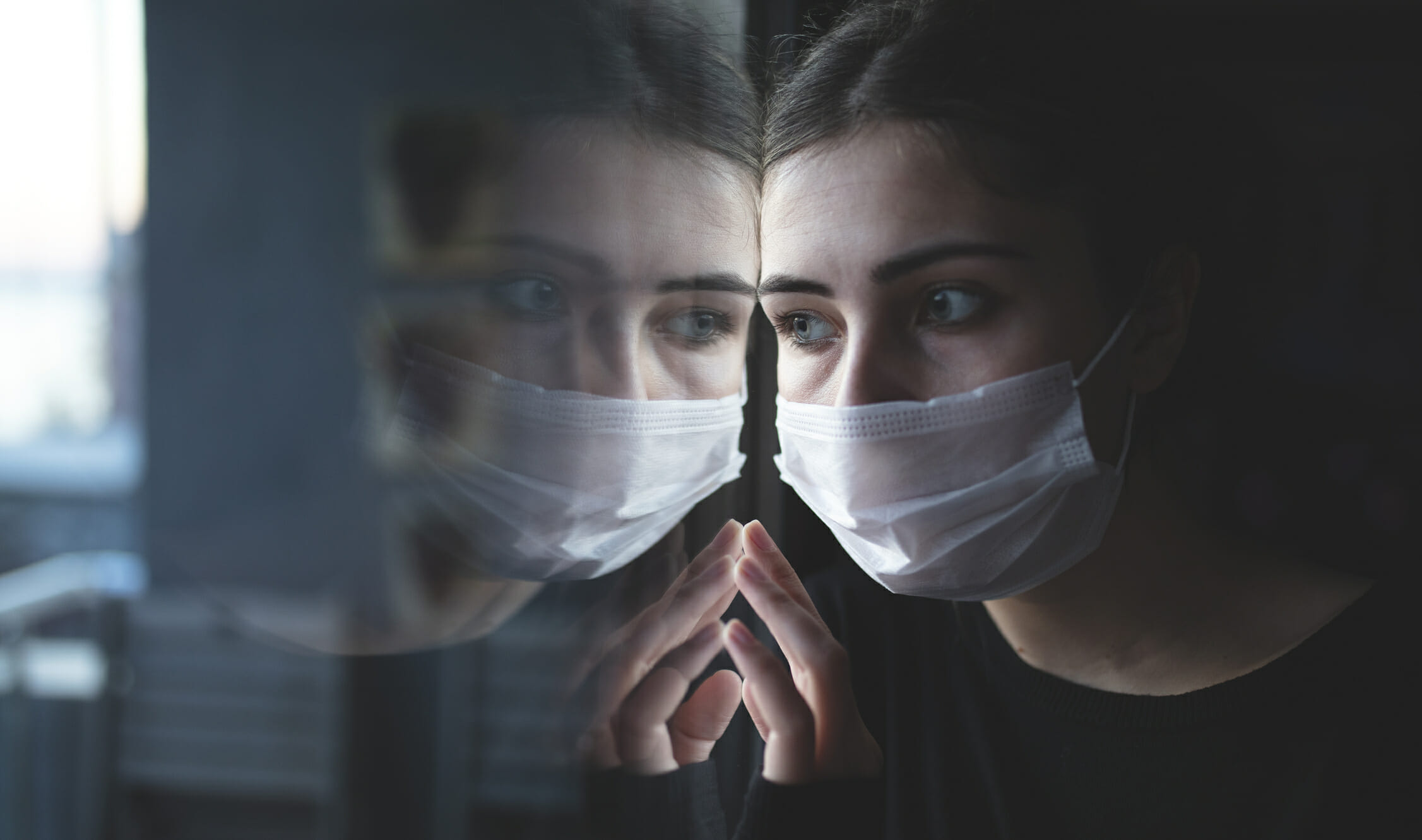Staying Sober Through Troubling Times

Published: August 1, 2020
How to stay sober and accountable during unprecedented times, such as COVID-19, during recovery.
Unprecedented times such as those that we are living in now with the coronavirus pandemic can negatively affect your recovery process. The feeling of being out of control that you might experience during a crisis can possibly push you back to relapse. Unfortunately, there has been misleading information on the use of alcohol during this period, including:
Myth: Drinking alcohol can kill the COVID-19 disease.
Fact: Drinking alcohol only makes matters worse – it doesn’t kill the virus either. If you consume alcohol and get infected with COVID-19, you are likely to experience severe symptoms of the disease. Alcohol (at a concentration of at least 60% by volume) only acts as a disinfectant on your skin. When ingested, it loses its disinfectant effects.
Myth: Consuming heavily concentrated alcohol destroys the virus in the air you breathe in.
Fact: Alcohol will not kill the virus in the inhaled air, regardless of how strong it might be. It doesn’t disinfect your mouth or air passage. You won’t get any protection against the COVID-19 by consuming alcohol.
Myth: Alcohol boosts your immunity against the virus.
Fact: No brand or type of alcohol (beer, wine, spirits, etc.) can stimulate your immunity to offer you resistance against the virus. In fact, alcohol weakens your immune system making you more prone to infection.
How Unprecedented Times Can Affect Your Recovery Plan
Remaining sober is your primary goal when you are in a recovery program. While this might be your primary focus, you might find it very difficult to achieve sobriety when there is a crisis, such as the COVID-19. Here are the challenges that you might experience during an unprecedented period when in recovery.
Changes in Routine
Proper routine is vital to support your physical and mental health when recovering from a drug or alcohol addiction. However, unprecedented times like the current coronavirus disease outbreak can distort your routine, leaving you with little time to decompress, visit your loved ones, or catch up with your hobbies. As a result, your physical and emotional feelings can become depleted – something that can trigger your cravings to substance abuse.
Suspension of Your Recovery Program
Unprecedented times can lead to cancellation of your recovery meetings. For example, coronavirus disease has led to the suspension of public gatherings. Face-to-face recovery meetings such the alcohol anonymous and narcotics anonymous meetings have not been spared. They may be virtual, but without them, this means that you will not be able to acquire the social support, structure, and accountability, that is provided in-person meetings, putting your recovery in jeopardy.
Disruption in Treatment
If you are in recovery, quality healthcare that you can rely on is vital for you and your sobriety. Unprecedented times can make this challenging to achieve, especially when participating in outpatient substance abuse group treatment. With the COVID-19 outbreak, your treatment routine is likely to change due to social distancing guidelines, and diversion of healthcare personnel to treat emergency cases.
Easy Access to Alcohol
While schools, places of worship, sporting activities, and most businesses have closed due to COVID-19, liquor stores seemingly remained open in most places. Why is this so? Because the governments are worried that closing the liquor stores could lead to addicts developing life-threatening withdrawal symptoms. The hospitals are getting congested, and the government is not ready to strain the healthcare workers further in treating substance withdrawal disorders. Being in self-isolation, having a steady supply of alcohol, and a disrupted routine can more easily push you to relapse.
Crisis Blues
This unprecedented period can make you struggle with a collective sense of loss and grief of the life you were leading before the crisis occurred. Crisis, such as the COVID-19, can deny you the opportunity to engage in outdoor activities, mingle with your friends and your loved ones. A crisis can also make you lose a relative, lose your job, etc. As a result, you may develop a range of emotions that can trigger your cravings to drugs and/or alcohol.
How to Stay Sober and Accountable
Regardless of any challenges that can come on your way when there is a crisis, you can still stay sober and accountable. Here are ways that can help you stay in control:
Maintain Your Connections
If you value your mental and physical wellbeing, unprecedented times such as the COVID-19 pandemic will not break it. Look for alternative means of staying emotionally connected to people who can support you while in recovery. Telehealth, video appointments, or a simple phone call and participating in online recovery meetings can serve a purpose when face-to-face meetings are not possible.
Maintain a Schedule
If unprecedented times have disrupted your routine, create a new one. Maintaining critical elements in your daily life is vital for your recovery. Creating a simple routine like sleeping for about 7 to 8 hours and getting ready for the day (brushing your teeth, taking a shower, etc.) makes a significant difference even when you have nowhere to go.
Meditate and Stay Positive
Meditating each day can help you set perspective and intention. Put your focus on positive things. Simple things like making a phone call or a simple text to find out how your loved one or neighbors are doing can contribute towards your recovery. Doing something that can help you or someone else can motivate you to cultivate positivity.
Have a Plan to Cope
Don’t forget the basics regardless of any stage of recovery you are in. Remember the ‘national anthem’ recovery acronym, H.A.L.T., anticipate when you are likely to get hungry, angry, lonely, or tired during the unprecedented times. Come up with a proper plan on how to cope.
While there an unprecedented time cause challenges to your recovery, you can still stay sober and accountable. Don’t give up.
